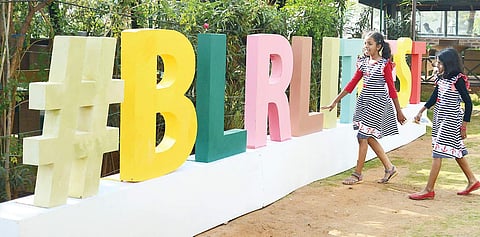

BENGALURU: On the second day of the Bangalore Literature Festival 2018, a panel of journalists and authors – Barkha Dutt, Jasmina Tesanovic, Rashmi Saksena and Paro Anand spoke about ‘Women in conflict zones’. The panel was moderated by writer, columnist and journalist Humra Quraishi.
Each of the panellists have ground-level experiences which they have expressed through their literary pieces. They were mainly concentrating on the huge difference in women belonging to the North and Northeastern conflict zones of the country. Recounting their experiences, they talked about how patriarchy dominates the role of women in Jammu and Kashmir. “Women from Jharkhand and Northeast are more on the frontlines of the conflict in comparison to women in Jammu & Kashmir,” said veteran journalist and author Rashmi Saksena. She worked at the grassroots level while writing her book, She goes to war, which focuses on women’s primary role in the conflict zones of India.
According to Saksena, many Northeastern women join cadres after taking proper training to join groups. “Whereas in Jammu and Kashmir, women support the separatists or Indian military based on the opinions of the men in their families, women in the Northeast conflict zones are on par with men and when it comes to taking sides, they have independent views.”
Along with Saksena, Barkha Dutt and Paro Anand commented on how the role of women varies among different sections of the country. Dutt spoke about her Kargil coverage and also stated how men differ from women while covering conflict zones. She said, “Women portray a humanitarian angle while it is more factual for a man. A male journalist mostly covers statistics while women deal more with the case studies.”
Activist-journalist Jasmina Tesanovic focuses on International conflict zones, which she said gets more prominence in her books.
Panel moderator Humra Quraishi then moved to the question and answer session with the audience. A girl in the audience, hailing from Kashmir, stated her views on the conflict situation in her hometown. According to her, women are more or less left with no choice but to choose a side and this has nothing to do with religion or politics.